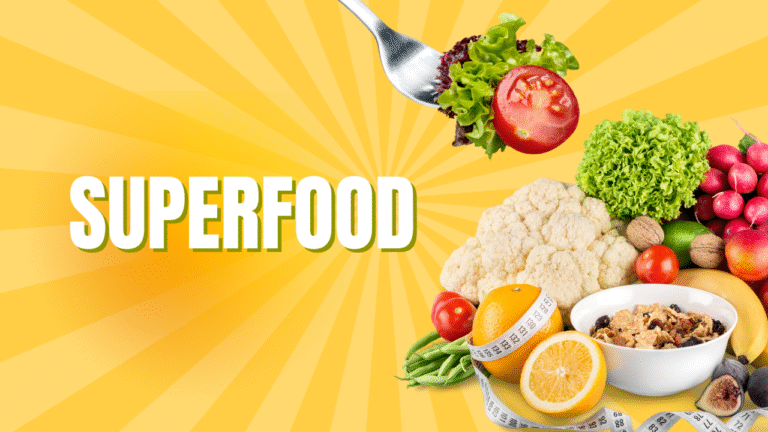Summer Health and Solutions
Summer Health and Solutions

INTRODUCTION:
Summer is the hottest season of the year. In India, summer starts from the March month to June month. In summer, the days are the longest and also warmer. In summer, Vitamin D is must in human’s body. The summer season brings with it a sense of joy and excitement as people look forward to sunny days, vacations, and outdoor activities. However, it’s important to be aware of potential health issues that can arise during this time. From heat-related illnesses to skin problems, taking preventive measures and adopting healthy habits can help ensure a safe and enjoyable summer. In this presentation, we will explore some common summer health issues and provide tips on how to stay healthy during the hot season. Stargazing is one of the type of therapy also its beneficial for our body also. Also in summer season, one of the longest day i.e. on 21st June. Summer brings joy and happiness with it, but also sometimes it also brings the diseases with it. Diseases can be avoided with the help of naturopathy with the help of natural treatments.
Common summer related health problems:
- Dehydration: One of the most significant health concerns during summer is dehydration. Sweating in hot weather can cause excessive fluid loss from the body, leading to dehydration. To prevent this, it is crucial to stay hydrated by drinking plenty of water throughout the day. Avoid sugary drinks and alcohol, as they can contribute to dehydration. Additionally, it’s advisable to limit outdoor activities during the hottest parts of the day and sock shade when possible.

Presentation or Major Complaints of Dehydration:
- Intense Thirst: The sensation of thirst often accompanies dehydration as the body attempts to replenish lost fluids.
- Mental Confusion: Dehydration can impair cognitive function, leading to confusion, difficulty concentrating, and irritability.
- Fever: In severe cases, dehydration may result in an elevated body temperature, resembling fever.
- Oliguria (Low Urine Output): Reduced urine output or dark-colored urine indicates dehydration as the kidneys conserve water.
- Skin Dryness: Dehydrated individuals may experience dry, flushed skin due to inadequate hydration.
Do’s and Don’ts for Preventing Dehydration:
Raw:
- Drink Plenty of Water: Aim to consume more than 8-10 glasses of water daily to maintain proper hydration levels.
- Coconut Water: While beneficial for hydration, individuals with kidney disease should avoid coconut water due to its potassium content.
- Fresh Fruit Juices: Opt for natural fruit juices without added sugars to replenish electrolytes and fluids.
- Buttermilk and Lassi: These traditional beverages provide hydration along with probiotics for digestive health.
- Lemon Water: Lemon-infused water offers a refreshing and hydrating option with added vitamin C.
- Electrolyte Solutions: Replenish lost electrolytes by consuming electrolyte drinks mixed with water.
- Hydrating Foods: Incorporate water-rich foods like cucumber and strawberries into your diet to supplement fluid intake.
Cooked:
- Soups: Soups made from hydrating vegetables like bottle gourd, tomato, and drumstick can contribute to fluid intake.
Don’ts:
- Avoid Alcohol: Alcoholic beverages can exacerbate dehydration and should be avoided, especially in hot weather.
- Limit Sugar Intake: High sugar content in drinks can lead to increased fluid loss through urination and should be consumed in moderation.
- Avoid Very Cold Drinks: Extremely cold beverages can cause stomach discomfort and cramping, hindering hydration efforts.
Understanding Fluid Loss:
The body loses water through various physiological processes, including sweating, urination, respiration, stool formation, and saliva production. While some fluid loss is normal, excessive sweating due to heat or physical exertion, diarrhea, vomiting, or frequent urination can lead to dehydration. Monitoring urine color, which becomes dark yellow during dehydration, along with symptoms like headache and muscle cramps, can help identify dehydration early.
In severe cases, dehydration can lead to serious complications, highlighting the importance of prompt recognition and intervention. By adopting preventive measures, such as staying hydrated, consuming electrolyte-rich foods and beverages, and avoiding alcohol and excessive sugar intake, individuals can enjoy a safe and healthy summer while minimizing the risk of dehydration-related issues.
2. Heatstroke and Heat Exhaustion: Extreme heat during the summer months can pose a significant risk of heat-related illnesses, including heatstroke and heat exhaustion. These conditions occur when the body’s temperature regulation system becomes overwhelmed, often due to prolonged exposure to high temperatures.

Presentation or Major Symptoms:
Heatstroke:
- High Body Temperature
- Rapid Heartbeat
- Headache
- Dizziness
- Nausea
- Confusion
Heat Exhaustion:
- Heavy Sweating
- Weakness
- Muscle Cramps
- Faintness
Safety Precautions:
To prevent heat-related illnesses, it’s essential to take appropriate safety precautions:
- Stay Cool: Seek shade or stay indoors during the hottest parts of the day.
- Wear Lightweight Clothing: Choose breathable fabrics that allow air circulation.
- Use Fans or Air Conditioning: Keep indoor spaces cool to prevent overheating.
- Stay Hydrated: Drink plenty of fluids to maintain hydration levels.
Hydrotherapy for Heatstroke and Heat Exhaustion:
Hydrotherapy techniques can be effective in managing heatstroke and heat exhaustion by aiding in temperature regulation:
Heat Stroke:
- Cold Water Pouring: Pour cold water (around 60°F) from a height onto the body while vigorously rubbing the skin.
- Ice Packs: Apply ice packs or cold compresses to the head and neck area.
- Cool Enema: Administer a cool enema to help lower body temperature.
- Cold Water Drinking: Encourage drinking cold water to hydrate and cool the body.
- Sweating Wet Sheet Pack: Wrap the body in a damp sheet to induce sweating and facilitate heat elimination.
Heat Exhaustion:
- Hot Immersion Bath: Soak in a hot bath with water temperatures ranging from 98-104°F for 2 to 10 minutes to improve thermoregulation.
- Hot Blanket Pack: Apply a warm blanket pack for 3 to 8 minutes to promote relaxation and circulation.
- Cold Wet Sheet Rub: Rub the body with a cold, damp sheet followed by wrapping in a warm blanket.
- Hot Enema: Administer a hot enema followed by a short cold mitten friction to stimulate circulation and cooling.
Nutrition & Dietetics:

Proper nutrition plays a crucial role in preventing and managing heat-related illnesses:
Advised:
- Hydrating Foods: Include cucumber, watermelons, coconut water, buttermilk, yogurt, mint or basil leaves, pomegranate, and lemonade in your diet to stay hydrated and replenish electrolytes.
Avoid:
- Dehydrating Foods and Beverages: Limit alcohol, caffeine, salty foods, fatty foods, and sugary foods, as they can exacerbate dehydration and contribute to heat-related issues.
By following these safety precautions, utilizing hydrotherapy techniques, and maintaining a balanced diet, individuals can minimize the risk of heatstroke and heat exhaustion and enjoy a safe and healthy summer season.
3. Sunburn and Skin Protection: Excessive exposure to the sun’s ultraviolet (UV) radiation can lead to sunburn, a painful condition that not only causes discomfort but also increases the risk of skin cancer. Protecting the skin from harmful UV rays is crucial for maintaining skin health and reducing the risk of sunburn and long-term damage.

Degrees of Sunburn:
Sunburn severity can vary and is typically classified into three degrees based on the extent of skin damage:
- First-Degree Burns:
- The mildest form of sunburn, characterized by damage to the outer layer of the skin (epidermis).
- Symptoms include redness, slight swelling, and pain, but blistering is usually absent.
- Treatment involves cooling the affected area with cold compresses and applying soothing remedies like aloe vera gel or chamomile.
2. Second-Degree Burns:
- Involves damage to both the epidermis and part of the underlying layer of skin (dermis).
- Skin appears pale pink, and there may be blistering and swelling along with increased pain.
- Treatment may include cold water immersion baths, application of cooling agents like cucumber or coconut oil, and keeping the affected area clean to prevent infection.
3. Third-Degree Burns:
- The most severe form of sunburn, affecting all three layers of the skin.
- Skin is burnt away, exposing underlying tissue that may appear pale or blackened.
- There are no blisters, and the remaining skin is dry and leathery.
- Third-degree burns require immediate medical attention to prevent complications and promote healing.
Natural Remedies for Sunburn:
Several natural remedies can help alleviate the discomfort of sunburn and promote healing:
- Cold Water: Apply cold packs or immerse the affected area in cold water for 3 to 5 minutes to soothe the skin and reduce inflammation.
- Aloe Vera Gel: Aloe vera has soothing and moisturizing properties that can help relieve sunburn symptoms and promote skin healing.
- Chamomile or Green Tea: Apply cooled chamomile or green tea compresses to the sunburned skin to reduce inflammation and discomfort.
- Cucumber: Cucumber slices or pureed cucumber can provide cooling relief and hydration to sunburned skin.
- Coconut Oil: Apply coconut oil to the affected area to moisturize and soothe sunburned skin.
- Baking Soda Bath: Adding baking soda to a bath and soaking for 15 to 20 minutes can help relieve sunburn pain and inflammation.
Other Measures for Sunburn Relief:
In addition to natural remedies, these measures can also help alleviate sunburn symptoms and promote healing:
- Wear Loose Clothing: Avoid tight-fitting clothing, which can further irritate sunburned skin.
- Stay Hydrated: Drink plenty of water to stay hydrated and aid in the healing process.
- Avoid Direct Sunlight: Protect sunburned skin from further UV exposure by staying indoors or seeking shade until the skin heals.
By following these preventive measures and utilizing natural remedies, individuals can effectively manage sunburn and promote skin healing while reducing the risk of complications. Taking proactive steps to protect the skin from excessive sun exposure is essential for maintaining skin health and overall well-being.
4. Allergies: Summer allergies are prevalent due to increased pollen levels, which can trigger allergic reactions in susceptible individuals. Taking necessary precautions to minimize exposure to allergens and exploring natural remedies can help manage allergy symptoms effectively during the summer months.

Symptoms of Summer Allergies:
Common symptoms of summer allergies include:
- Runny Nose
- Watery Eyes
- Sneezing
- Coughing
- Itchy Eyes and Nose
- Itching
- Rashes
- Swelling
- Asthma Exacerbation
Preventive Measures for Summer Allergies:
To reduce the risk of allergy symptoms, individuals can take the following precautions:
- Keep Windows Closed: Prevent pollen from entering indoor spaces by keeping windows closed, especially during peak pollen times.
- Use Air Purifiers: Install air purifiers to filter indoor air and remove allergens such as pollen, dust, and pet dander.
- Regularly Clean Surfaces: Minimize allergen buildup by regularly cleaning surfaces, floors, and upholstery to remove pollen and dust particles.
- Consult Healthcare Professional: Seek guidance from a healthcare professional to identify appropriate allergy medications or treatments tailored to individual needs.
Natural Remedies for Seasonal Allergies:
Several natural remedies may help alleviate allergy symptoms:
- Quercetin: Found in foods like onions, broccoli, citrus fruits, apples, parsley, and tea, quercetin possesses anti-inflammatory properties that may help reduce allergy symptoms.
- Vitamin C: Known for its immune-boosting properties, vitamin C can help mitigate allergy symptoms by reducing inflammation and histamine levels.
- Bromelain: Found in pineapple, bromelain has anti-inflammatory properties and may help alleviate allergy symptoms.
- Butterbur: A plant extract that may relieve allergy symptoms, particularly nasal congestion and hay fever.
- Probiotics: Consuming probiotics may help modulate the immune response and reduce allergy symptoms.
- Stinging Nettle: Nettle leaf extract may have antihistamine properties and can be effective in managing allergy symptoms.
- Raw Honey: Local raw honey may help desensitize the body to pollen allergens when consumed regularly.
- Exercise: Regular physical activity can boost immune function and help alleviate allergy symptoms.
- Acupuncture: Acupuncture may provide relief from allergy symptoms by balancing the body’s energy and reducing inflammation.
- Diet: Including anti-inflammatory foods like turmeric, berries, tomatoes, grapes, broccoli, cherries, avocado, and walnuts in the diet may help alleviate allergy symptoms.
Dietary Sources of Quercetin:
Foods high in quercetin and other flavonoids include:
- Citrus Fruits
- Apples
- Onions
- Parsley
- Sage
- Tea
- Red Wine
- Olive Oil
- Grapes
- Dark Cherries
- Dark Berries such as Blueberries, Blackberries, and Bilberries
Saline Nasal Irrigation or Jalneti:
Saline nasal irrigation, also known as jalneti, involves flushing out nasal passages with a saltwater solution to remove allergens and irritants, providing relief from allergy symptoms.
By incorporating these preventive measures and natural remedies into their routine, individuals can effectively manage summer allergies and enjoy the season with minimal discomfort and disruption. Consulting with a healthcare professional can help tailor an allergy management plan suited to individual needs and preferences.
5. Food and Water borne diseases: Outdoor gatherings and barbecues are popular summer activities, offering opportunities for fun and socializing. However, the heat of summer can also create conditions conducive to the growth of harmful bacteria in food, increasing the risk of foodborne illnesses. To ensure food safety and prevent illness, it’s essential to follow proper hygiene practices and cooking techniques when preparing and serving food outdoors.
Preventing Foodborne Illnesses:
To minimize the risk of foodborne illnesses during outdoor gatherings, consider the following precautions:
- Practice Good Hygiene: Wash hands thoroughly with soap and water before handling food, and clean utensils and surfaces used for food preparation.
- Keep Perishable Foods Refrigerated: Store perishable foods, such as meat, poultry, seafood, dairy products, and prepared salads, in a cooler with ice packs until ready to cook or serve.
- Cook Thoroughly: Cook meat, poultry, and seafood to the recommended internal temperatures to kill harmful bacteria. Use a food thermometer to ensure proper cooking.
- Avoid Cross-Contamination: Keep raw meat, poultry, and seafood separate from ready-to-eat foods to prevent cross-contamination. Use separate cutting boards and utensils for raw and cooked foods.
- Monitor Temperature: Avoid leaving food outside in hot temperatures for extended periods. Keep hot foods hot (above 140°F) and cold foods cold (below 40°F) to prevent bacterial growth.
- Serve Safely: Serve food promptly after cooking and avoid letting it sit out at room temperature for too long. Discard any perishable foods that have been left out for more than two hours (or one hour if the temperature is above 90°F).
Signs and Symptoms of Food Poisoning:

Recognizing the signs and symptoms of food poisoning is crucial for prompt intervention and treatment. Common symptoms include:
- Weakness
- Diarrhea
- Nausea
- Vomiting
- Fever
- Abdominal Pain and Cramps
- Headache
Natural Remedies for Food Poisoning:
While seeking medical attention is important for severe cases of food poisoning, some natural remedies may help alleviate symptoms and support recovery:
- Ginger: Known for its anti-nausea and digestive properties, ginger can help soothe an upset stomach.
- Apple Cider Vinegar: Contains antibacterial properties and may help combat bacterial infections in the digestive system.
- Fenugreek & Yogurt: Fenugreek seeds mixed with yogurt can help ease digestion and alleviate symptoms of food poisoning.
- Lemons: Lemon juice may help cleanse the digestive system and reduce symptoms of nausea and vomiting.
- Garlic: Garlic has antimicrobial properties and may help fight off harmful bacteria in the digestive tract.
- Holy Basil: Also known as Tulsi, holy basil has antibacterial and anti-inflammatory properties that may aid in the treatment of food poisoning.
- Banana: Bananas are easy to digest and can help replenish lost electrolytes and nutrients due to vomiting and diarrhea.
- Cumin: Cumin seeds or powder may help relieve digestive discomfort and reduce bloating and gas.
- Herbal Tea: Herbal teas like peppermint or chamomile can help soothe the digestive system and alleviate nausea and abdominal pain.
- Honey: Honey has antimicrobial properties and may help combat bacterial infections in the digestive tract.
In addition to natural remedies, it’s important to stay hydrated by drinking plenty of fluids and avoid foods that may exacerbate symptoms. If symptoms persist or worsen, seek medical attention promptly.
By following proper food safety practices, recognizing the signs of food poisoning, and utilizing natural remedies as needed, individuals can enjoy outdoor gatherings and barbecues safely and reduce the risk of foodborne illnesses.
Conclusion:
As the warmth of summer beckons us outdoors for fun and relaxation, it’s crucial to prioritize our health and well-being. By understanding common summer health issues and taking proactive measures to prevent them, we can fully embrace the joys of the season while minimizing potential risks.
Stay Hydrated: Hydration is key to maintaining our body’s equilibrium, especially in the heat of summer. Drink plenty of water throughout the day to keep dehydration at bay and support overall health.
Protect Your Skin: Shielding our skin from the sun’s harmful rays is essential for preventing sunburn and reducing the risk of skin cancer. Apply sunscreen, wear protective clothing, and seek shade during peak sun hours to safeguard your skin.
Be Mindful of Allergies: With increased pollen levels during summer, allergies can flare up and cause discomfort. Take precautions such as keeping windows closed, using air purifiers, and consulting healthcare professionals for appropriate treatments.
Practice Food Safety: Outdoor gatherings and barbecues are synonymous with summer, but improper food handling can lead to foodborne illnesses. Follow hygiene practices, keep perishable foods refrigerated, cook meat thoroughly, and avoid leaving food out in hot temperatures.
By incorporating these precautions into our summer routines, we can ensure a safe and healthy season filled with memorable experiences. Whether it’s soaking up the sun at the beach, enjoying a picnic in the park, or gathering with loved ones for a barbecue, let’s cherish the moments while keeping our health at the forefront. Here’s to a safe and enjoyable summer ahead!







